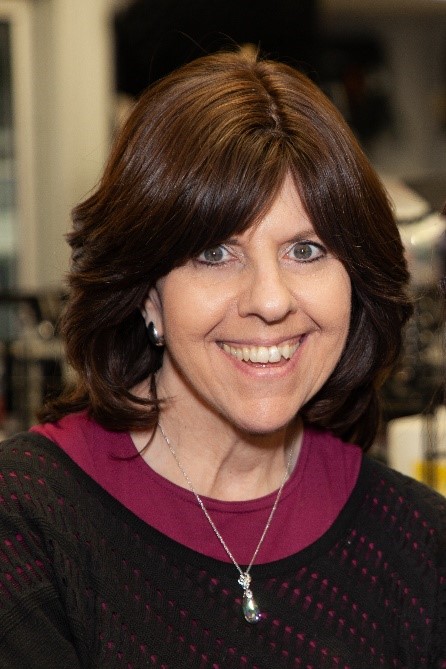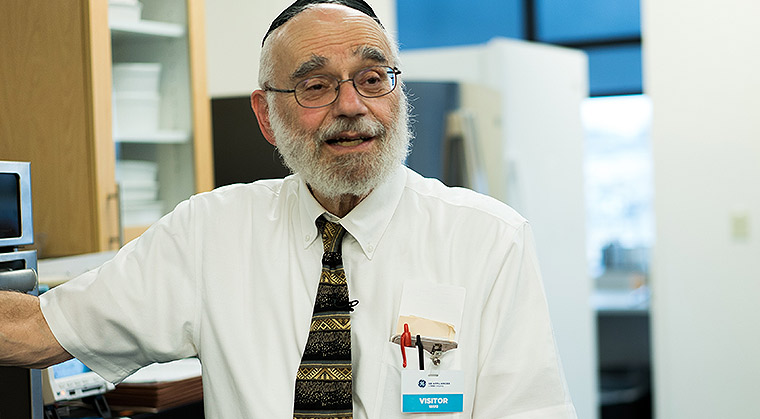Switched onto Shabbos Mode


BELLS AND WHISTLES There’s a pressing need for Sabbath Mode appliances these days because manufacturers keep on adding fancy bells and whistles to their products. When he asks them why, he says they answer “because we can!” But all that technology can complicate Shabbos and Yom Tov observance. “Electronics do funny things and sometimes the manufacturers themselves can’t figure things out,” says Mr. Ottensoser. “And it’s only going to get worse” (Photos: Elijah Bowman, Louisville, KY)
R
emember the days when putting a refrigerator in Shabbos mode meant taping up a spring-loaded switch or unscrewing a light bulb?
While some of those ancient appliances still exist, many of today’s ovens, refrigerators, and other kitchen gadgets feature advanced technology like touch controls, LED screens, and digital humidity gauges, all of which can make cooking easier but also makes setting your oven for Shabbos and Yom Tov harder.
That’s why Jonah Ottensoser, a leading authority on kosher ovens and appliances for the Star-K organization of Baltimore, is helping dozens of companies design “Sabbath Mode” appliances. Star-K is the only kosher-certifying agency to partner with manufacturers to create these Sabbath Mode appliances, and Mr. Ottensoser works with companies like GE, Whirlpool, Viking, Sub-Zero, and Frigidaire to help them build products that Jewish consumers can use (to a limited degree) on Yom Tov and Shabbos. Today, thousands of appliances are certified with Sabbath Mode functions, from refrigerators to cooktops to ranges to wall ovens to wine coolers.
It’s a fourth career for Mr. Ottensoser, 73, who started off as an aerospace engineer for the U.S. government and then later worked as a data analyst for defense contractor Wylie Labs. He has also taught mathematics at Towson University, Stevenson University, and Howard Community College, all in Maryland. Mr. Ottensoser earned a bachelor’s degree in mechanical engineering at City College of New York and a master’s in the same subject from Catholic University in Washington, D.C.
Mr. Ottensoser, who’s been with the Star-K for 20 years, has helped 31 companies design Sabbath Mode appliances for thousands of products. He personally visits the manufacturers between five and ten times per year, crisscrossing the country from Benton Harbor, Michigan, to Louisville, Kentucky, to Milwaukee, Wisconsin, and Los Angeles, California.
“I was once asked by LG to go to South Korea, but I declined,” recalls Mr. Ottensoser. “I didn’t want to travel 32 hours or be in a country where I know nothing about the language. The engineer tried to convince me, saying, ‘I’ll treat you very well and take you to the best crab houses in the city!’ ”
There’s a pressing need for Sabbath Mode appliances these days because manufacturers keep on adding fancy bells and whistles to their products. When he asks them why, he says they answer “because we can!” But all that technology can complicate Shabbos and Yom Tov observance.
“Electronics do funny things and sometimes the manufacturers themselves can’t figure things out,” says Mr. Ottensoser. “And it’s only going to get worse.”
For example, he says, there are refrigerators on the market built with internal cameras that can show you exactly what’s inside. That’s great when you’re at the grocery and you aren’t sure what you have at home, but problematic on Shabbos. Other high-end refrigerators are installed with proximity sensors that set off lights when you approach them. That’s a real advantage if you want a drink at 2 a.m., but again, problematic for the Shabbos-observant Jew.
“It doesn’t take long for the engineers at the companies to understand what we’re after,” says Mr. Ottensoser. “Sometimes, in fact, they will point out something that I may have missed, for example, if there isn’t a delay in the oven where there should have been one. I’ve never had a problem with them sneaking something by. They always are respectful and concerned that they meet our requirements.” (Excerpted from Mishpacha, Issue 711)
Oops! We could not locate your form.













